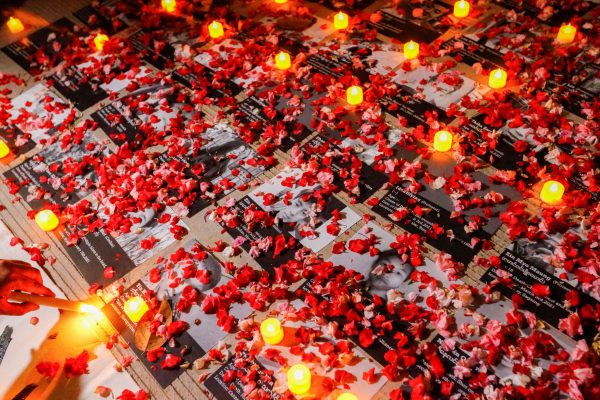Brunei’s primary goal was to preserve regional stability, allowing ASEAN member states to focus on battling the pandemic. Brunei indicated early on it was unlikely to conclude a contentious Code of Conduct to manage maritime disputes in the South China Sea. Constrained by the demands of virtual meetings and the threat of the pandemic, Brunei made clear that COVID-19 was its priority.
Everything changed after the military coup in Myanmar ousted the civilian government of the National League for Democracy (NLD) and installed a junta led by General Min Aung Hlaing. Widespread opposition to the coup has led to increasingly violent clashes, leaving Myanmar on the brink of civil war.
Although a consensus-based organisation, ASEAN is divided over how to respond. While Indonesia currently leads maritime states Malaysia, Singapore and the Philippines in denouncing the coup, Myanmar’s mainland neighbours Thailand, Cambodia, Laos and Vietnam have demurred. Brunei has the unenviable task of uniting these blocs.
Brunei’s small but professional diplomatic corps is an important asset. Recognising its larger role in 2021, the Legislative Council approved a 7 per cent budget increase for the Ministry of Foreign Affairs. This will help Brunei mediate the crisis in Myanmar.
Since the crisis began, Brunei has taken an unprecedentedly active role as ASEAN chair. It released a brief chairman’s statement on behalf of ASEAN — but without a formal consensus — within 24 hours of the coup. The statement did not directly decry the coup, in accordance with ASEAN’s longstanding policy of non-interference in the domestic affairs of its members. It did prioritise a respect for democracy, the rule of law, human rights and a solution in accordance with the ‘will and interests’ of Myanmar’s people. By ASEAN standards, this was a strong expression of disapproval.
Brunei has faced the difficult question of negotiating with the junta. Any talks risk legitimising the coup, yet while Indonesia initially took charge of pressuring other member states to form a consensus, Brunei as the neutral chair quietly met with the junta’s representatives virtually. The emergence of a parallel Myanmar administration in the Committee Representing Pyidaungsu Hluttaw (CRPH) complicates matters. A government in exile led by NLD parliamentarians, the CRPH claims to represent the legitimate, civilian authorities of Myanmar and has called on ASEAN to lend it international recognition.
Brunei has so far prioritised maintaining communication with the junta, inviting its foreign minister to the Informal ASEAN Foreign Ministers’ Meeting on 2 March. While Singapore argued that ASEAN needed to take a stand lest it lose its regional influence, Malaysia proposed that Myanmar consider a visit by representatives of Brunei and the apolitical ASEAN Secretary General to help mediate the political crisis.
After the meeting, Brunei released another chairman’s statement — a watered-down version of the previous one — indicating that ASEAN remained divided. The statement focused on preserving stability and the need for a ‘peaceful solution, through constructive dialogue … in the interests of the people’. Absent were any mentions of human rights or the ‘will’ of the people. The statement noted that ASEAN had ‘heard’ calls for the release of political prisoners but did not echo requests by the United Nations.
That does not mean Brunei is unaware of the deteriorating situation. The foreign ministry released an unprecedented statement on 10 March reiterating the points of both the ASEAN chairman’s statements, clarifying that the stronger points were Brunei’s own foreign policy and not just its stance as ASEAN chair. This pressured the junta to recognise that even the neutral chair opposed its violent crackdown on protesters and that, overall, ASEAN members are losing patience.
After the failure of ASEAN to act, the CRPH withdrew the terrorist designation on all ethnic militias, enticing them to form a ‘federal army’ against the junta. With a civil war brewing, Indonesia’s President Joko Widodo formally requested Brunei call a special ASEAN leaders’ summit to resolve the crisis.
Brunei and Malaysia endorsed such a meeting, to be held at the ASEAN Secretariat in Jakarta. This would be the first in-person ASEAN summit since virtual meetings began in 2020, offering ASEAN leaders a last chance to find a consensus on Myanmar through closed-door, ‘quiet’ diplomacy.
The reason for an in-person meeting became clear after Thailand confirmed junta-leader General Min Aung Hlaing’s attendance on 24 April. This legitimises the junta over the newly formed National Unity Government (NUG) of the CRPH and its ethnic allies. Brunei’s decision as chair to invite General Min Aung Hlaing is the clearest indication yet it sees direct talks with the junta as vital to resolving the crisis.
Brunei’s challenge is to forge a consensus at or before the leaders’ summit. This will be ASEAN’s real test, as member states will need to release a joint statement — they will no longer be able to hide behind Brunei’s statements as chair. How Brunei can help ASEAN find that unity in the shadow of the man responsible for the coup, and apparently in the absence of Thailand’s Prime Minister Prayut Chan-ocha, will be a very difficult task to resolve, but the stakes are high. If ASEAN fails to form a consensus, it risks a fractious, public display of its internal divisions that will only invite China and the United States to impose their own solutions.
Brunei has its work cut out for it, but the small country seems up to the challenge.
Moez Hayat is a postgraduate student at the Edmund A Walsh School of Foreign Service at Georgetown University. He is an incoming Fulbrighter and Visiting Researcher at the Academy of Brunei Studies, University of Brunei Darussalam.

